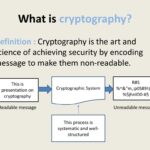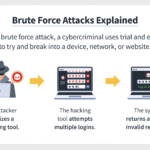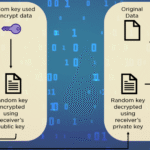In today’s digital era, where data breaches and cyber threats are rampant, the importance of cryptography cannot be overstated. The art and science of encoding information has evolved tremendously, and it plays a critical role in protecting sensitive data. As individuals delve into this fascinating discipline, a common query arises: Can one truly learn cryptography on their own? This question merits a nuanced exploration of the various dimensions involved.
Initially, it is crucial to understand what cryptography encompasses. At its core, cryptography is about constructing and analyzing protocols that safeguard third-party communications from adversaries. This involves a robust understanding of mathematical concepts, particularly in areas such as number theory, algebra, and discrete mathematics. For anyone considering self-study, it is paramount to possess a solid foundation in these prerequisites to effectively grasp more intricate topics.
Self-directed learning offers unique advantages. It empowers individuals with the autonomy to choose their learning pace, delve into topics that pique their interest, and employ resources that resonate with their learning style. Digital resources, ranging from dedicated cryptography tutorials, scholarly articles, and online courses, to forums and cryptography communities, provide a wealth of information at one’s fingertips. These resources can cater to novices as well as seasoned professionals seeking to hone their craft.
The availability of online platforms such as Coursera, edX, and Khan Academy has democratized access to knowledge. One can find comprehensive courses specifically in cryptography. These platforms often incorporate video lectures, interactive quizzes, and assignments that encourage practical, hands-on experience. This approach not only enhances understanding but also fosters engagement—a crucial element in any learning journey.
However, while self-study is appealing, it does not come without challenges. Cryptography is inherently complex. Without structured guidance or mentorship, individuals may encounter roadblocks that impede progress. For instance, deciphering the intricacies of symmetric and asymmetric encryption algorithms can be daunting without someone to elucidate the finer points. It is easy to become disheartened when faced with cryptographic proofs or the nuances of various encryption standards.
To combat this, aspiring cryptographers can benefit from the formation of study groups or online meetups. Collaborative learning fosters a dynamic environment where individuals can ask questions, share insights, and collectively tackle challenging concepts. Engaging with peers provides a form of accountability that can embolden individuals to persist through difficult topics and motivates them to maintain their study rigor.
Another integral aspect of self-learning is the consistent practice of skills. Enigmas, ciphers, and encoding exercises are abundant online. Websites like Cryptii, Ciphers School, and even GitHub repositories provide interactive environments for students to practice real-world applications of cryptographic techniques. These practical challenges not only reinforce theoretical knowledge but also enhance problem-solving skills, which are invaluable in the field of cryptography. Regularly applying learned concepts in practical scenarios crystallizes knowledge and enhances retention.
Additionally, books remain an indispensable resource in the study of cryptography. A plethora of texts range from introductory guides to advanced treatises that delve into modern cryptographic systems. Titles like “Cryptography and Network Security” by William Stallings and “The Code Book” by Simon Singh are excellent starting points. Textual resources provide a comprehensive theoretical framework that is sometimes overlooked in digital formats. When read critically, they offer critical insights that may reshape one’s understanding of cryptographic principles.
Moreover, as technology evolves, so do the challenges posed to cryptographic systems. Staying abreast of current trends and emerging threats is vital for any cryptographer. Engaging with contemporary research papers, attending webinars, or subscribing to cryptography-related podcasts can provide ongoing education that complements formal learning. Understanding current debates and innovations within the cryptography community will cultivate a richer, more contextual grasp of the subject.
Furthermore, it is essential to recognize the ethical dimensions of cryptography. The power of encryption can be wielded for both altruistic and nefarious purposes. As self-learners delve deeper into cryptographic techniques, they must contemplate the ethical implications of their knowledge. Engaging in discussions surrounding privacy rights, data protection, and surveillance, can significantly enhance the depth of one’s understanding and foster a responsible outlook on the utilization of cryptographic skills.
In conclusion, while the prospects of self-learning cryptography may seem daunting, they are certainly achievable with determination and the right approach. With a wealth of resources, supportive communities, and the privilege of autonomy, individuals can embark on an extensive journey through the cryptographic landscape. This journey not only enriches personal knowledge but can also contribute to a more secure digital future. Ultimately, whether one chooses to uncover the mysteries of cryptography alone or alongside others, the fundamental promise remains: a shift in perspective that unveils the intricate world of information security and its profound implications in our increasingly connected lives.








Leave a Comment